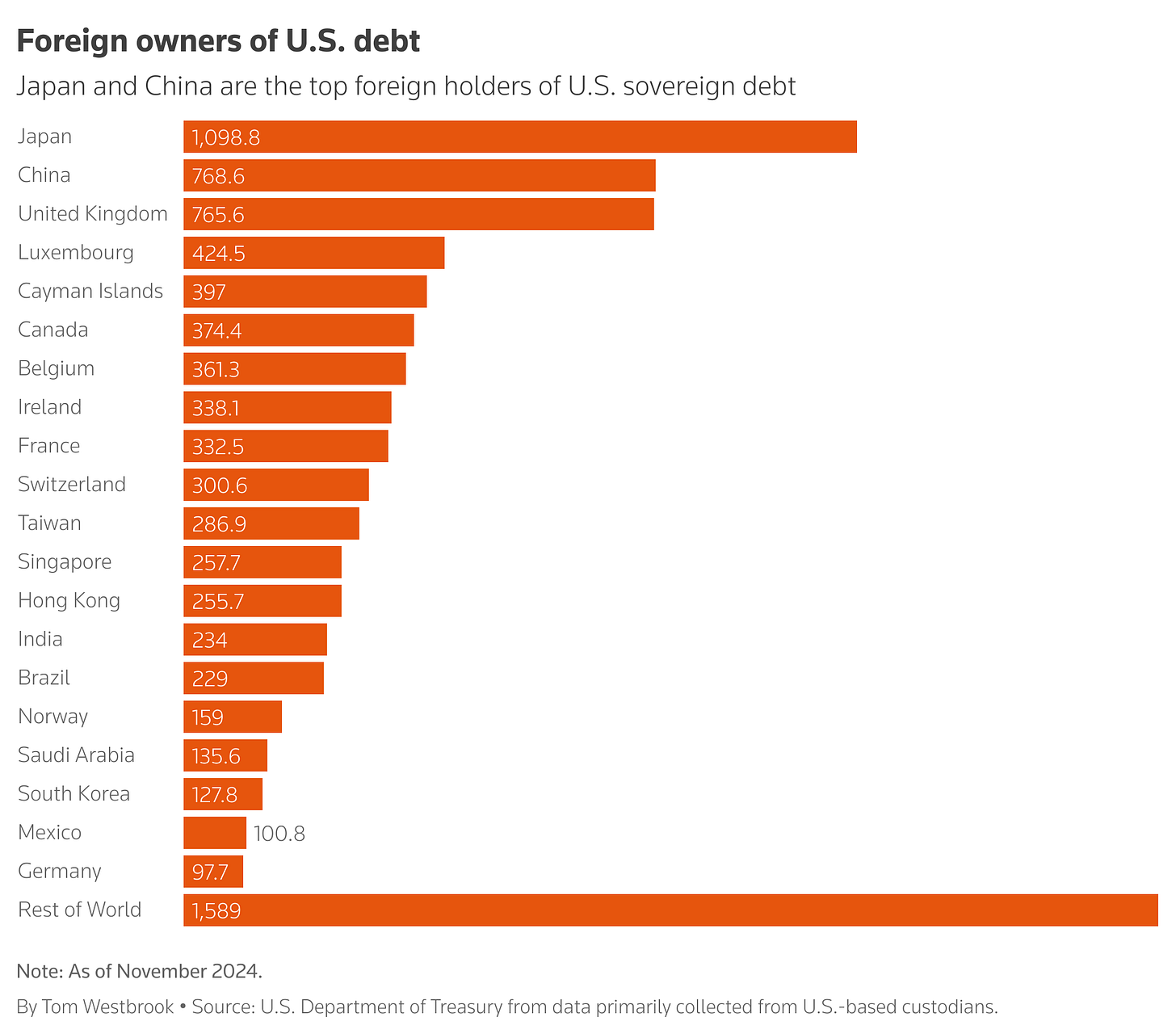A Sucker's Bet
How the "Big, Beautiful Bill" Cuts Critical Services and Increases the Federal Debt
If you're playing a poker game and you look around the table and and can't tell who the sucker is, it's you. - Paul Newman
The old bait and switch. The Trump administration’s budget proposal tries to bait the American public by deceptively marketing deep cuts to popular programs as necessary to balance the budget, and then switching in tax giveaways to the wealthy that significantly increase the national debt. Escalating pressure from the combination of a large, high interest federal debt and an ideological preference for smaller government is pushing toward a federal government that provides fewer services with a smaller budget. The President’s “Big, Beautiful Bill” tries to sell itself as a responsible effort to promote a smaller federal government in order to solve our national debt crisis. But it actually makes the problem significantly worse, by mischaracterizing the nature of the cuts along the way and adding significantly to the national debt. For at least the last 25 years, our representatives in DC from both parties have spent more in the budget that came in from tax revenues. Now, no politician has wanted to be held accountable when our budgetary chickens are coming home to roost. The President is attempting to dodge his part of the responsibility for that mess by pretend he’s taking care of the problem, while actually making it far worse.
Failure Is an Orphan. Both parties bear substantial responsibility for the current unsustainable federal budget. The last balanced budget we had was during the second Clinton term. After 9/11, conservatives ran up military spending to support our wars in Iraq and Afghanistan, but they didn’t raise taxes to cover the costs. Instead, President George W. Bush told Americans to, “Get on board. Do your business around the country. Fly and enjoy America's great destination spots. Get down to Disney World in Florida.” In the Affordable Care Act in 2009, Democrats did the same with healthcare spending. Both parties knew very well what they were doing, but they bet that when the consequences arrived their priorities would win out over the competition’s priorities. Politicians of both parties were also glad to kick the can down the road by putting the resulting debt on the government “credit card” when interest rates were declining. However, as the government’s cost to borrow money rose after the pandemic occurred, the grim reality set it. Consider that the annual cost of interest payments on our $36 trillion federal debt is $360 billion if interest rates are 1%, but $1.8 trillion if the government has to pay 5% in interest out of our $6 trillion annual budget.
The Trump tax cuts and post-pandemic inflation accelerated the timeline of the inevitable showdown between defense and nondefense spending. Few politicians seem willing to take their share of responsibility for the crisis or to work across party lines to make the unpopular compromises necessary for the good of the country. Over the short term, that will likely mean the federal government retreats from its role regulating industry, funding education, and supporting healthcare for low income people (Medicaid). Overall, more responsibility will shift to the states, which will either decide to cover the resulting service deficits by raising taxes or decline to do so and allow a substantial reduction in essential services.

Short Term Cuts Favor Republican Priorities. Given that the Republican hold the White House and both chambers of Congress, they will focus cuts on programs they do not favor, such as regulations that restrict businesses, particularly when it comes to environmental and consumer protection. People may oppose “Big Government,” but they tend to like the impacts of federal regulations - clean land, air, and water to enjoy, pharmaceuticals that help rather than hurt them, and banks that don’t try to cheat them. The declining federal role in these areas will put more pressure on the states to fill them. Because the states are required to balance their budgets, this will inevitably require higher state taxes to support their greater responsibilities.
Furthermore, the federal cuts will affect education and Medicaid, both of which the public generally supports. The initial impacts on education may not have yet registered with the public, as the cuts largely involve research funding. But over time, dramatically reducing the essential role that the federal government plays in basic science research at universities will undermine the US economy, which relies heavily on publicly-funded discoveries. Cuts to both K-12 and higher education funding will also result in reduced services for special needs children, less support for improving outcomes for low income students, fewer Pell Grants for higher education, and more limited availability of federal student loans for college. These have not made the headlines that other program cuts have, but they are coming. The other stories that haven’t made headlines show solid evidence that federal funding for these compensatory programs results in significant savings over the long term, because they lead to more productive participation in economic pursuits.
About 80 million Americans (1 in 4) rely on Medicaid, the cooperative state-federal health insurance program for those with low incomes. With its expansion in stages since 2009, Republicans have objected to its inclusion of “able-bodied men” and the 10% cost share required for states to participate in the expansion. In many states where conservative legislatures refused to expand Medicaid, voters expanded it themselves.
However, as shown above by the Kaiser Family Foundation, working-age people on Medicaid, regardless of gender, generally do work when they are able to. The problem is that their employers often do not provide them with health insurance, because paying the penalty for not doing so costs far less than paying for the insurance.
The Republican proposal in the so-called “Big, Beautiful Bill” largely saves money by making Medicaid more bureaucratic and harder to stay enrolled in, causing many people to be dropped from the program. Of note, even though many hospitals have to pay additional taxes to support Medicaid, they overwhelmingly support it because Medicaid focuses on keeping people healthy and out of the hospital. In Oregon, Medicaid expansion and the Affordable Care Act dropped the uninsured rate from over 20 percent to about 6 percent. The current proposals will save the federal government money, but they do so mostly by letting people get or stay sick, not by encouraging employment.
Conclusion. The proposed Congressional cuts to regulation, education, and Medicaid play a familiar game - providing deceptive talking points while doing little to address the actual problems we face. Indeed, the service cuts they propose are overshadowed by tax cuts going to higher income taxpayers, worth over 240% of the money saved. The net effect is not to decrease the national debt, but rather to increase it by $2.8 trillion over the next 10 years.
To be fair, the proposal does potentially increase growth, but only by 0.6% of Gross Domestic Product, according to the Tax Foundation. In the end, it’s not a “Big, Beautiful Bill” - it’s a bill of goods.
Coda - America’s Creditors Use Their Influence to Rein In Trump.
Having so much debt outstanding has serious consequences for our foreign affairs, as well as our domestic spending. When the President imposed higher tariffs on Canada, the Prime Minister of Canada started selling off that country’s US Treasury holdings. This, in turn, forced the yield on T-bills up, increasing the US’s cost of borrowing and impeding the President’s ability to pass tax cuts. Mr. Trump immediately backed down. The world’s second-largest international holder of US debt is China. Is it any surprise Mr. Trump recently backed down from his tariff threats against that country as well?
Kicking My Own Can Down the Road. As I wrote this, I realized that it would take too much room to address the long term changes needed to Medicare, Social Security, Defense, and Veterans Affairs necessary to create a truly sustainable federal budget. I’ll tackle that in my next column.
Keep Letters from a Recovering Politician Free
As always, the best thing you can do to support this column is to share it with people who might be interested. I do not have a paid plan because I want folks to be able to access it without worrying about money. If you’d like to leave me a tip to show your appreciation, you can click on the “Buy Me a Coffee” button below.
Disclaimer
The views expressed herein are those of the author and not necessarily those of the Department of Navy, the Department of Defense, the University of Oregon, or any other entity with which the author is affiliated








